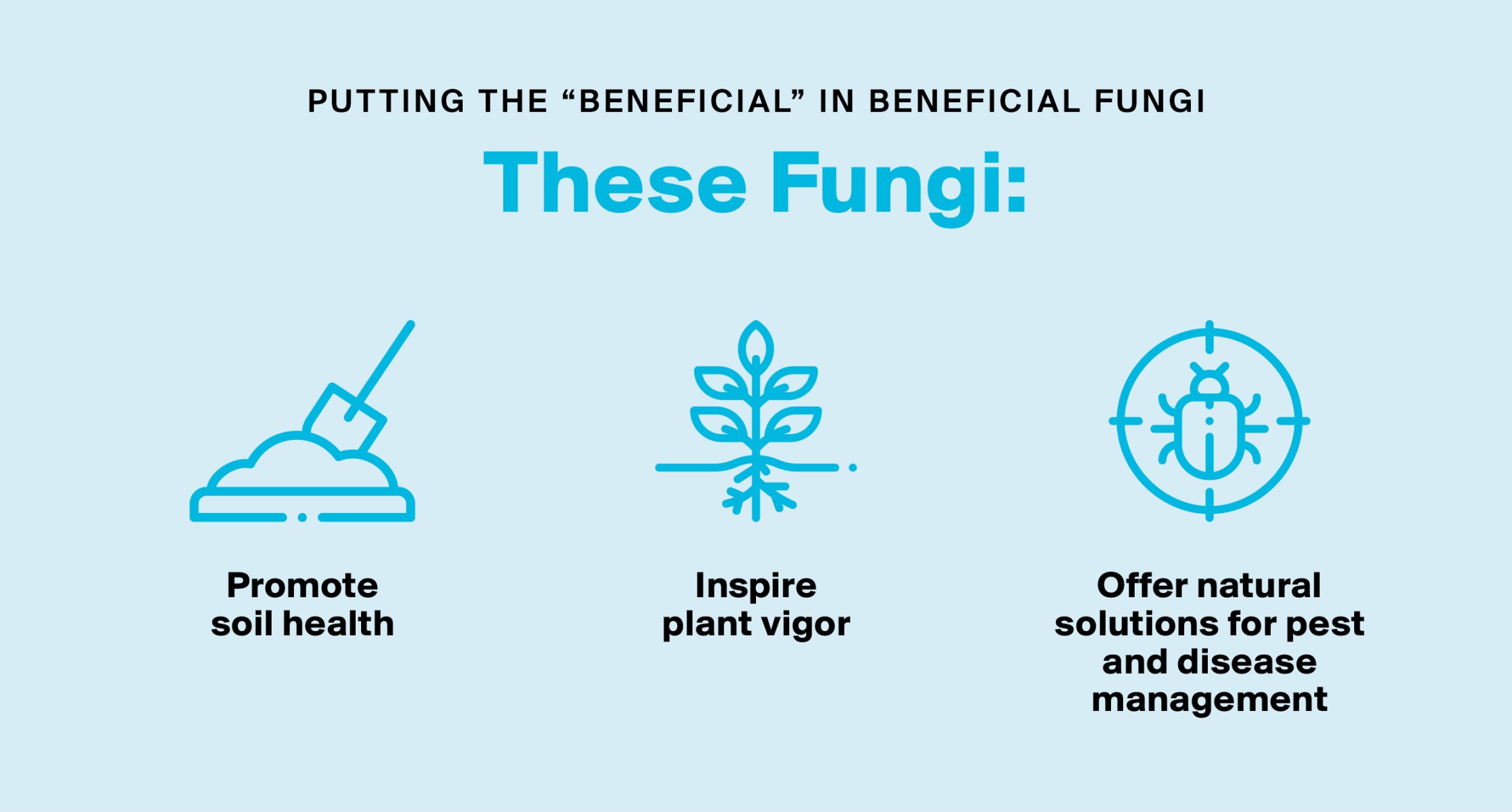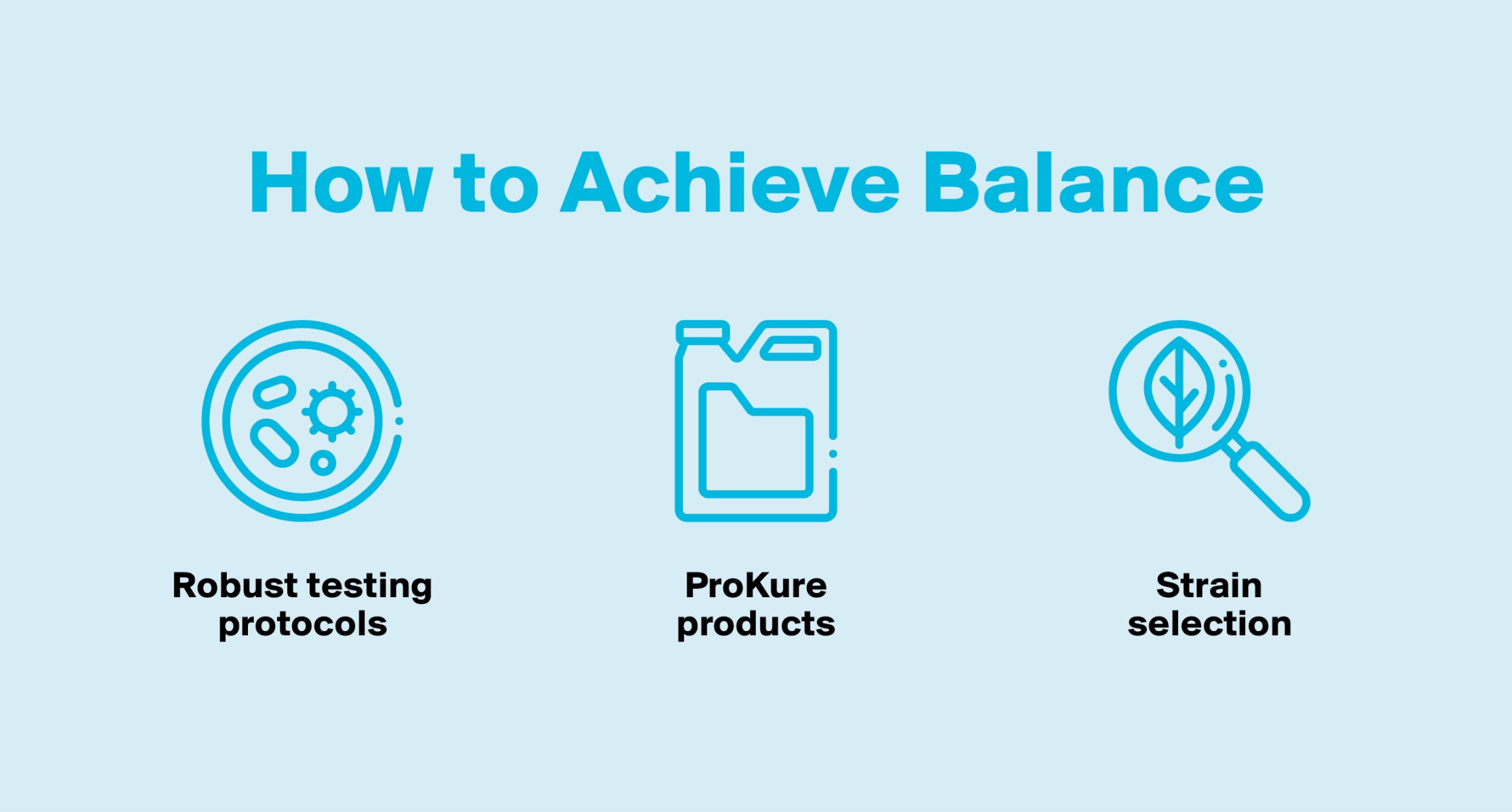As the cannabis industry continues to grow, so too should the regulations aimed at ensuring product safety and quality. Mold contamination, particularly from species like Aspergillus, remains a paramount concern for cultivators and regulators alike. While some states mandate PCR testing for Aspergillus, others may impose Total Yeast and Mold (TYM) testing requirements, which are indiscriminate with respect to beneficial fungi. In this blog post, we investigate the utilization of beneficial fungi in cannabis cultivation, highlighting how their use may impact testing outcomes and compliance.
Understanding Beneficial Fungi:
Beneficial fungi, including Trichoderma and mycorrhizal fungi, are integral components of sustainable cultivation practices. They:
- Promote soil health
- Inspire plant vigor
- Offer natural solutions for pest and disease management
However, the use of beneficial fungi in cultivation practices can inadvertently lead to failures in TYM testing, posing challenges for cultivators striving to balance compliance with sustainable cultivation methods.

Challenges Posed by Beneficial Fungi Can Include:
- False Positives in Testing: Beneficial fungi, such as Trichoderma, may be detected during TYM testing, creating testing and compliance issues
- Product Consistency: The presence of beneficial fungi in cultivation practices can introduce variability in product consistency, as their effects on plant growth and development may vary depending on environmental conditions and other factors. While these fungi are beneficial to plant health and may not pose risks to consumers, their presence can trigger regulatory non-compliance and undermine cultivator efforts to produce safe and high-quality cannabis products.
Conclusions:
Cultivators must navigate the delicate balance between harnessing the benefits of beneficial fungi and ensuring compliance with TYM testing requirements. This necessitates careful consideration of cultivation practices, including the selection of fungal inoculants and monitoring their impact on testing outcomes.
Solutions:
- Implementing robust testing protocols: including microbial screening of inoculants, pathogens, and cultivation inputs, can help identify and mitigate the risk of failed testing.
- Utilization of ProKure Products: ProKure offers innovative solutions for mitigating mold contamination in cannabis cultivation facilities. The EPA-registered ProKure V, a chlorine dioxide product, reduces the likelihood of testing failures while maintaining compliance with TYM requirements.
- Strain Selection: Cultivators can opt for cannabis strains that are less susceptible to mold infestations, reducing reliance on beneficial fungi for pest and disease management.

By incorporating these mitigation strategies, cannabis cultivators can navigate the challenges associated with state testing requirements while leveraging the benefits of beneficial fungi and innovative solutions like ProKure to ensure product quality, safety, and regulatory compliance.

